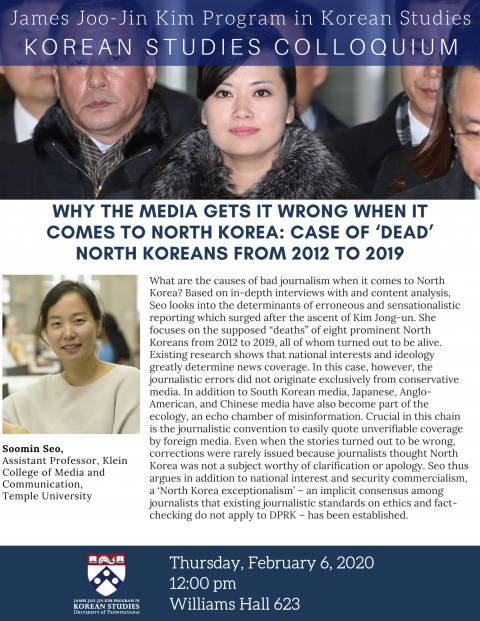
Korean Studies Colloquium
623 Williams Hall
What are the causes of bad journalism when it comes to North Korea? Based on in-depth interviews with and content analysis, Seo looks into the determinants of erroneous and sensationalistic reporting which surged after the ascent of Kim Jong-un. She focuses on the supposed “deaths” of eight prominent North Koreans from 2012 to 2019, all of whom turned out to be alive. Existing research shows that national interests and ideology greatly determine news coverage. In this case, however, the journalistic errors did not originate exclusively from conservative media. In addition to South Korean media, Japanese, Anglo-American, and Chinese media have also become part of the ecology, an echo chamber of misinformation. Crucial in this chain is the journalistic convention to easily quote unverifiable coverage by foreign media. Even when the stories turned out to be wrong, corrections were rarely issued because journalists thought North Korea was not a subject worthy of clarification or apology. Seo thus argues in addition to national interest and security commercialism, a ‘North Korea exceptionalism’ – an implicit consensus among journalists that existing journalistic standards on ethics and fact-checking do not apply to DPRK – has been established.
 James Joo-Jin Kim Center for Korean Studies
James Joo-Jin Kim Center for Korean Studies